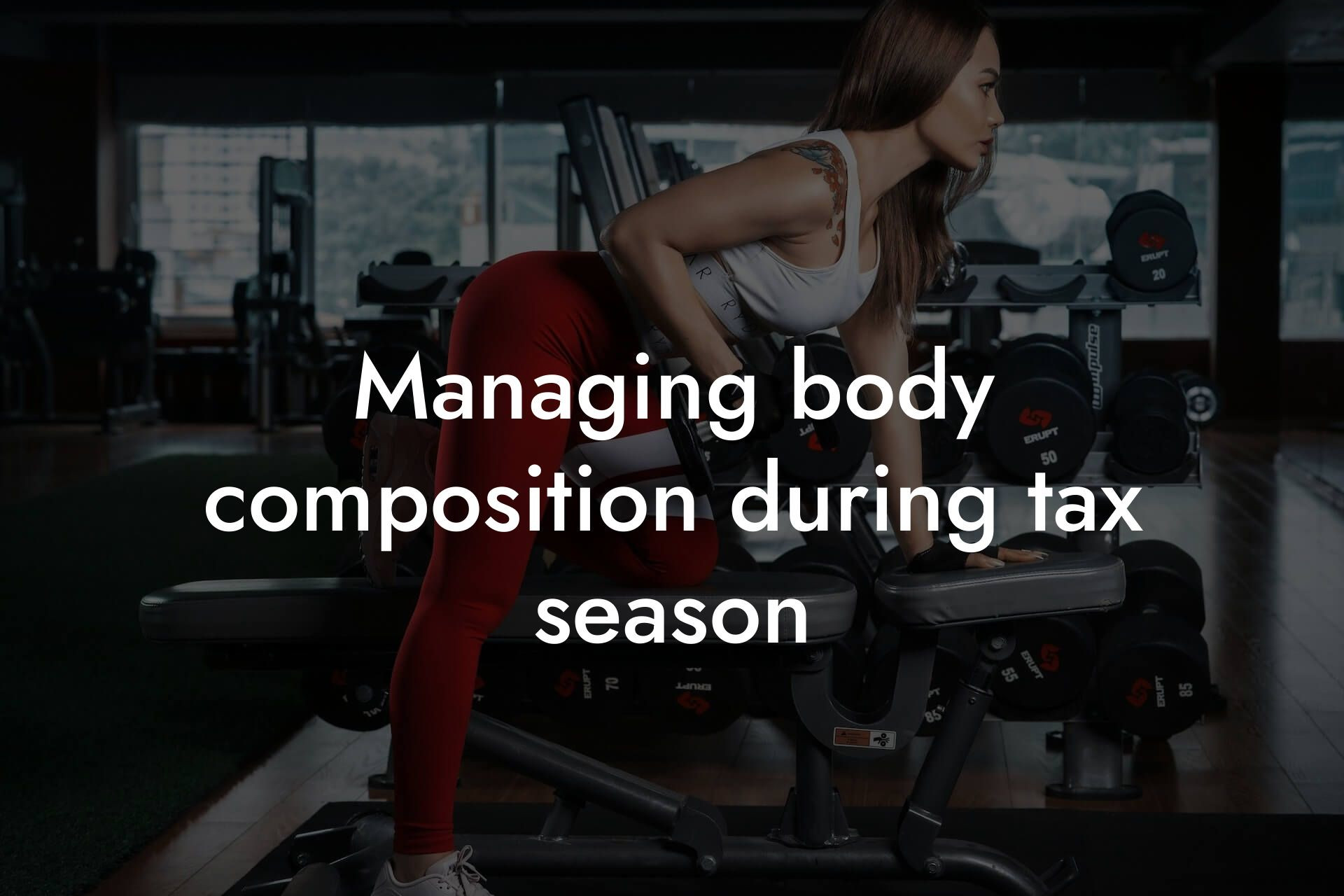Understanding the Impact of Financial Stress on Your Health
High-stress financial periods can have a significant impact on your overall health and wellbeing. Chronic stress can lead to a range of physical and emotional health problems, including anxiety, depression, insomnia, and digestive issues. When you're under financial pressure, it's easy to neglect your health, but it's crucial to prioritize your wellbeing during these times. By understanding the impact of financial stress on your health, you can take proactive steps to mitigate its effects and maintain a healthy lifestyle.
Table of Contents
- Understanding the Impact of Financial Stress on Your Health
- Getting Enough Sleep During Financially Challenging Times
- Nutrition and Meal Planning on a Budget
- Staying Active During Financially Challenging Times
- Managing Stress and Anxiety Through Mindfulness and Meditation
- Prioritizing Self-Care During Financially Challenging Times
- Seeking Support During Financially Challenging Times
- Using Technology to Stay on Top of Your Finances
- Getting Back on Track with a Body Composition Analysis
- Frequently Asked Questions
Getting Enough Sleep During Financially Challenging Times
Sleep is essential for overall health, and it's especially crucial during high-stress financial periods. Lack of sleep can exacerbate stress, anxiety, and depression, making it even harder to cope with financial pressures. Aim for 7-9 hours of sleep each night and establish a relaxing bedtime routine to help you wind down. Avoid screens and stimulating activities before bedtime, and create a sleep-conducive environment by keeping your bedroom cool, dark, and quiet.
Nutrition and Meal Planning on a Budget
Eating a balanced diet is vital for maintaining energy levels, focus, and overall health during high-stress financial periods. However, it can be challenging to eat healthily on a budget. Focus on whole, unprocessed foods like fruits, vegetables, whole grains, lean proteins, and healthy fats. Plan your meals in advance, and consider meal prepping to save time and money. Shop for seasonal produce, and look for discounts and promotions at your local grocery store.
Staying Active During Financially Challenging Times
Regular exercise is essential for reducing stress, anxiety, and depression. However, it can be challenging to find the motivation to exercise during high-stress financial periods. Start small by incorporating short bursts of physical activity into your daily routine, such as taking the stairs instead of the elevator or going for a short walk during your lunch break. Find free or low-cost exercise options in your local community, such as yoga classes or jogging groups.
Managing Stress and Anxiety Through Mindfulness and Meditation
Mindfulness and meditation are powerful tools for managing stress and anxiety during high-stress financial periods. These practices can help you stay present, focused, and calm, even in the face of financial uncertainty. Start with short, daily meditation sessions, and gradually increase the duration as you become more comfortable with the practice. You can find free guided meditation sessions online or through mobile apps like Headspace and Calm.
Prioritizing Self-Care During Financially Challenging Times
Self-care is essential for maintaining a healthy lifestyle during high-stress financial periods. Prioritize activities that bring you joy and relaxation, such as reading, listening to music, or taking a relaxing bath. Make time for activities that promote social connection, such as meeting with friends or family, or joining a social club or group. Remember, self-care is not a luxury, but a necessity for maintaining your overall health and wellbeing.
Seeking Support During Financially Challenging Times
Seeking support from friends, family, or a professional counselor can be incredibly helpful during high-stress financial periods. Don't be afraid to reach out for help when you need it, and consider joining a support group or online community for people facing similar financial challenges. Remember, you're not alone, and seeking support is a sign of strength, not weakness.
Using Technology to Stay on Top of Your Finances
Technology can be a powerful tool for managing your finances during high-stress financial periods. Consider using budgeting apps like Mint or You Need a Budget to track your expenses, create a budget, and set financial goals. Automate your savings and bill payments to reduce financial stress and ensure you're staying on top of your finances.
Getting Back on Track with a Body Composition Analysis
During high-stress financial periods, it's easy to neglect your physical health. However, maintaining a healthy body composition is crucial for overall health and wellbeing. Consider getting a body composition analysis using a DEXA machine, which can provide you with a detailed breakdown of your body fat percentage, bone density, and muscle mass. This information can help you identify areas for improvement and create a personalized fitness and nutrition plan to get you back on track.
By following these tips, you can maintain a healthy lifestyle during high-stress financial periods. Remember, your health and wellbeing are crucial for navigating financial challenges and achieving long-term success. By prioritizing your health, you'll be better equipped to tackle financial stress and achieve your goals.
Frequently Asked Questions
How can I prioritize my health during high-stress financial periods?
During high-stress financial periods, it's essential to prioritize your health by focusing on self-care, exercise, and nutrition. Make time for activities that bring you joy, practice stress-reducing techniques like meditation or deep breathing, and fuel your body with whole, nutrient-dense foods. Remember, taking care of your physical and mental health is crucial for maintaining resilience during challenging times.
What are some common health risks associated with financial stress?
Financial stress can lead to a range of health risks, including anxiety, depression, insomnia, digestive problems, and a weakened immune system. Chronic financial stress can also increase the risk of cardiovascular disease, hypertension, and obesity. It's essential to be aware of these risks and take proactive steps to manage your stress levels and prioritize your health.
How can I manage my stress levels during high-stress financial periods?
Effective stress management is critical during high-stress financial periods. Try incorporating stress-reducing activities into your daily routine, such as yoga, walking, or journaling. Prioritize sleep, aim for 7-8 hours per night, and establish a relaxing bedtime routine to improve sleep quality. Additionally, consider seeking support from friends, family, or a mental health professional if needed.
What are some healthy coping mechanisms for dealing with financial stress?
Healthy coping mechanisms for dealing with financial stress include exercise, meditation, and creative pursuits like painting or writing. Engaging in activities that bring you joy and help you relax can help mitigate the negative effects of financial stress. Avoid unhealthy coping mechanisms like substance abuse, overeating, or avoidance, which can exacerbate the problem and negatively impact your health.
How can I maintain a healthy diet during high-stress financial periods?
Maintaining a healthy diet during high-stress financial periods can be challenging, but it's essential for supporting your overall health. Focus on whole, nutrient-dense foods like fruits, vegetables, whole grains, lean proteins, and healthy fats. Aim to cook at home using affordable ingredients, and consider meal prepping to save time and money. Avoid relying on processed or high-sugar foods, which can worsen stress and negatively impact your health.
What are some affordable ways to stay active during high-stress financial periods?
Staying active during high-stress financial periods doesn't have to break the bank. Consider bodyweight exercises, walking, or jogging, which are free and can be done anywhere. Look for free or low-cost fitness classes in your community, or try following along with YouTube workout videos. You can also incorporate physical activity into your daily routine, such as taking the stairs instead of the elevator or doing a few jumping jacks during commercial breaks.
How can I prioritize self-care during high-stress financial periods?
Prioritizing self-care during high-stress financial periods is crucial for maintaining your mental and physical health. Make time for activities that bring you joy and relaxation, such as reading, taking a warm bath, or practicing yoga. Schedule self-care into your daily routine, even if it's just 10-15 minutes per day, and prioritize activities that help you feel calm and centered.
What are some common mistakes people make during high-stress financial periods?
Common mistakes people make during high-stress financial periods include neglecting their physical and mental health, isolating themselves from friends and family, and turning to unhealthy coping mechanisms like substance abuse or overeating. Avoid these mistakes by prioritizing your health, seeking support from loved ones, and engaging in healthy coping mechanisms.
How can I stay motivated to maintain a healthy lifestyle during high-stress financial periods?
Staying motivated to maintain a healthy lifestyle during high-stress financial periods can be challenging, but it's essential for supporting your overall health. Celebrate small victories, like cooking a healthy meal or completing a workout, and remind yourself of your long-term health goals. Find an accountability partner or join a support group to stay motivated and inspired.
What are some resources available for managing financial stress?
There are many resources available for managing financial stress, including credit counseling services, financial advisors, and online resources like budgeting apps and financial planning tools. Don't be afraid to seek help if you're struggling to manage your finances – remember, taking control of your financial health is a critical step in reducing stress and improving your overall well-being.
How can I prioritize my mental health during high-stress financial periods?
Prioritizing your mental health during high-stress financial periods is essential for maintaining your overall well-being. Make time for activities that bring you joy and relaxation, practice stress-reducing techniques like meditation or deep breathing, and seek support from friends, family, or a mental health professional if needed. Remember, taking care of your mental health is critical for building resilience during challenging times.
What are some common physical symptoms of financial stress?
Common physical symptoms of financial stress include headaches, stomach problems, insomnia, and muscle tension. If you're experiencing these symptoms, it's essential to prioritize your physical health by engaging in regular exercise, practicing stress-reducing techniques, and seeking support from a healthcare professional if needed.
How can I maintain a healthy work-life balance during high-stress financial periods?
Maintaining a healthy work-life balance during high-stress financial periods is crucial for supporting your overall health. Set clear boundaries between your work and personal life, prioritize self-care, and make time for activities that bring you joy and relaxation. Remember, taking breaks and prioritizing your personal life can help you stay productive and focused during challenging times.
What are some healthy ways to deal with anxiety during high-stress financial periods?
Healthy ways to deal with anxiety during high-stress financial periods include exercise, meditation, and deep breathing. Engage in activities that bring you joy and relaxation, practice gratitude, and seek support from friends, family, or a mental health professional if needed. Avoid unhealthy coping mechanisms like substance abuse or avoidance, which can worsen anxiety and negatively impact your health.
How can I stay positive during high-stress financial periods?
Staying positive during high-stress financial periods can be challenging, but it's essential for maintaining your mental and physical health. Focus on the things you're grateful for, practice positive self-talk, and remind yourself of your long-term goals. Engage in activities that bring you joy and relaxation, and seek support from loved ones or a mental health professional if needed.
What are some common myths about financial stress?
Common myths about financial stress include the idea that financial stress only affects low-income individuals, or that it's a personal failing. Financial stress can affect anyone, regardless of income level, and it's often a result of systemic or structural issues. Don't be afraid to seek help and support if you're struggling with financial stress – remember, taking control of your financial health is a critical step in reducing stress and improving your overall well-being.
How can I support a loved one who is experiencing financial stress?
Supporting a loved one who is experiencing financial stress can be challenging, but it's essential for maintaining their mental and physical health. Listen without judgment, offer emotional support, and help them connect with resources like credit counseling services or financial advisors. Avoid giving unsolicited advice or trying to "fix" the problem – instead, focus on providing a supportive and non-judgmental space for your loved one to open up about their struggles.
What are some long-term benefits of maintaining a healthy lifestyle during high-stress financial periods?
Maintaining a healthy lifestyle during high-stress financial periods can have numerous long-term benefits, including improved physical and mental health, increased resilience, and a stronger sense of self-care. By prioritizing your health during challenging times, you can build a foundation for long-term well-being and reduce your risk of chronic diseases like cardiovascular disease and diabetes.
How can I make self-care a priority during high-stress financial periods?
Making self-care a priority during high-stress financial periods is crucial for maintaining your mental and physical health. Schedule self-care into your daily routine, even if it's just 10-15 minutes per day, and prioritize activities that bring you joy and relaxation. Remember, taking care of yourself is not a luxury – it's a necessity for building resilience during challenging times.
What are some common signs of burnout during high-stress financial periods?
Common signs of burnout during high-stress financial periods include chronic fatigue, insomnia, irritability, and a lack of motivation. If you're experiencing these symptoms, it's essential to prioritize your physical and mental health by engaging in regular exercise, practicing stress-reducing techniques, and seeking support from friends, family, or a mental health professional if needed.
How can I maintain a healthy body composition during high-stress financial periods?
Maintaining a healthy body composition during high-stress financial periods can be challenging, but it's essential for supporting your overall health. Focus on whole, nutrient-dense foods, stay hydrated, and engage in regular exercise. Avoid relying on processed or high-sugar foods, which can worsen stress and negatively impact your health.
What are some resources available for high-earning professionals struggling with financial stress?
As a high-earning professional, you may face unique challenges when it comes to financial stress. At Tano Performance Group, we offer resources and support specifically tailored to your needs. From financial planning tools to stress management techniques, we're here to help you achieve your goals and maintain a healthy lifestyle during high-stress financial periods.
Here are some related articles you might love...
- How to stay fit during long hours in finance
- Managing body composition during tax season
- Nutrition strategies for staying energized during market hours
- How to balance client dinners with fitness goals
- The benefits of regular DEXA scans for finance professionals
- Best practices for staying fit in a sedentary job
- The impact of body fat on cognitive function in finance
- The role of physical fitness in stress management for finance professionals
- Quick workout routines for bankers on the go
Zak Faulkner
Zak Faulkner is a leading authority in the realm of physical health and body composition analysis, with over 15 years of experience helping professionals optimise their fitness and well-being. As one the experts behind Tano Performance Group, Zak has dedicated his career to providing in-depth, science-backed insights that empower clients to elevate their physical performance and overall health.
With extensive knowledge of DEXA technology, Zak specializes in delivering comprehensive body assessments that offer precise data on body fat, muscle mass, bone density, and overall physique. His expertise enables individuals to make informed decisions and achieve their fitness goals with accuracy and confidence. Zak’s approach is rooted in a deep understanding of human physiology, combined with a passion for helping clients unlock their full potential through personalised strategies.
Over the years, Zak has earned a reputation for his commitment to excellence, precision, and client-focused service. His guidance is trusted by top professionals who demand the best when it comes to their health. Whether advising on fitness programs, nutritional strategies, or long-term wellness plans, Zak Faulkner’s insights are a valuable resource for anyone serious about taking their health and fitness to the next level.
At Tano Performance Group, Zak continues to lead our Content Team revolutionising how professionals approach their physical health, offering unparalleled expertise that drives real results.




